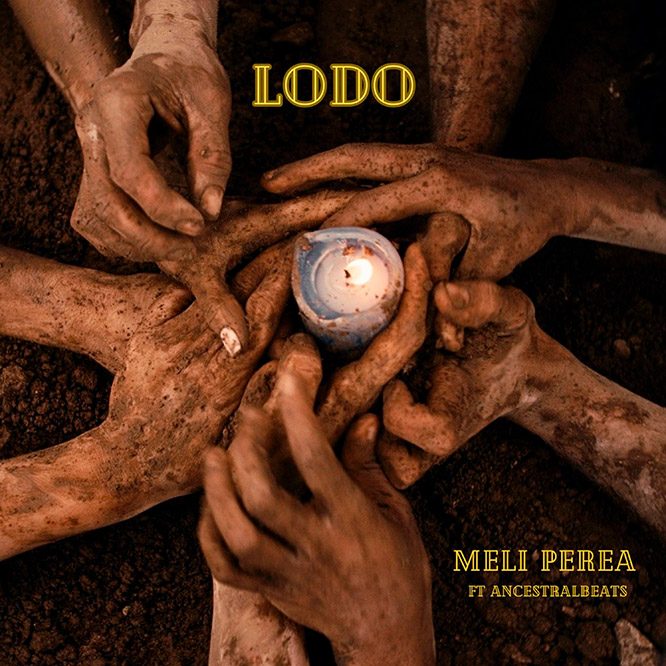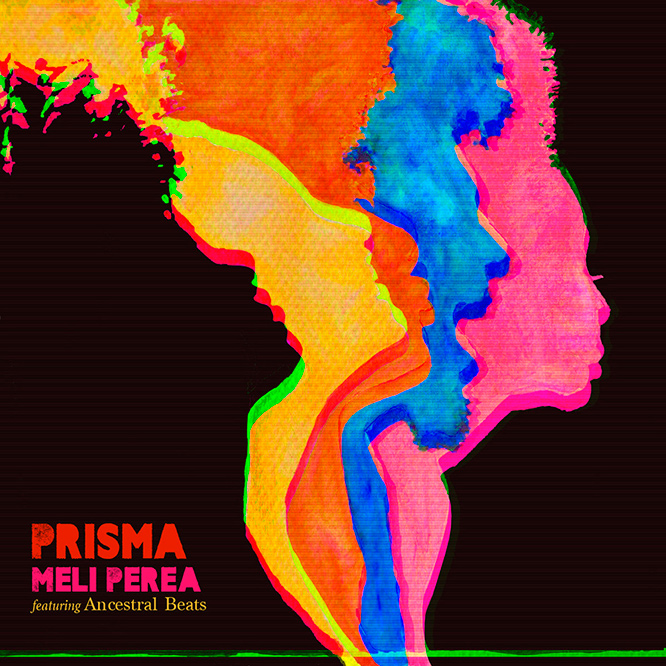Meli Perea


Meli Perea presents "Prisma," her first full-length album, featuring 10 songs that tell real-life stories about neighborhoods and characters that the artist has made her own in this album.
Meli Perea, whose real name is Melissa Carballido Perea, is a singer and songwriter from Bogotá, Colombia. Her musical journey began in the streets and squares of Bogotá, where she engaged in freestyle rap with her neighborhood friends. As the only female participant, she learned and developed a distinctive style that still resonates in her music today. It wasn't until after the pandemic that Meli Perea arrived in Catalonia (Delta del Ebro) alongside Sergi, her life partner and the DJ of the project, to create "Prisma," one of her most intimate projects, produced in a home studio with the collaboration of friends and musicians like Ancestral Beats. In this album, she blends Latin rap with Afro-Colombian rhythms, adding flavor, and electronic music to make the tracks suitable for the dancefloor. It's a perfect balance of different genres, aiming to showcase the need to connect with one another and recognize ourselves in each of the songs.
The album starts with "Actitud," a cheerful and optimistic track that reveals the playful side of this collection. With the same energy, we find "La Rumba" and "Guateque," with the latter describing the joy of a street singer who brings smiles to passersby. This happiness transforms into a sense of achievement in "Lo que me trama," a story of a character who adapts to reach their goals, overcoming all obstacles and clinging to the dream's illusion.
As we reach the middle of the album, the musical atmosphere changes to delve into more critical and raw themes. An example is "Coge lo que traigo," featuring Afro-Colombian singer Lalo Cortés. This track discusses migrants, emphasizing the importance of valuing people for their essence rather than their features, cultures, or beliefs. It's an anthem against racism. Following this, there's another adrenaline-filled song, "3AM," narrating the journey of two girls returning home after a night out in Bogotá, where walking is not an option. With percussive rhythms inspired by the aguabajo rhythm, a folkloric style from the Colombian Pacific coast, there's "Debajo el puente" featuring Adala, a prominent figure in the Catalan Reggae genre. In this song, Meli Perea and Adala's voices come together in different atmospheres and narratives to critique the stigmatization of drug-dependent individuals.
Notable is "Encara no," a song in Catalan that reflects the reality of an older person and their relationship with death, a reflection on the will to live. The album closes with "Mi padre está en Cana," a song that takes her back to the neighborhood where she grew up and reflects the social hardships of life in South America.
In this fierce and capricious world, "Prisma" serves as a window into empathy, capable of putting the listener in the shoes of each protagonist and conveying all the colors of emotions. "Prisma" is now available on all digital platforms.
Meli Perea, whose real name is Melissa Carballido Perea, is a singer and songwriter from Bogotá, Colombia. Her musical journey began in the streets and squares of Bogotá, where she engaged in freestyle rap with her neighborhood friends. As the only female participant, she learned and developed a distinctive style that still resonates in her music today. It wasn't until after the pandemic that Meli Perea arrived in Catalonia (Delta del Ebro) alongside Sergi, her life partner and the DJ of the project, to create "Prisma," one of her most intimate projects, produced in a home studio with the collaboration of friends and musicians like Ancestral Beats. In this album, she blends Latin rap with Afro-Colombian rhythms, adding flavor, and electronic music to make the tracks suitable for the dancefloor. It's a perfect balance of different genres, aiming to showcase the need to connect with one another and recognize ourselves in each of the songs.
The album starts with "Actitud," a cheerful and optimistic track that reveals the playful side of this collection. With the same energy, we find "La Rumba" and "Guateque," with the latter describing the joy of a street singer who brings smiles to passersby. This happiness transforms into a sense of achievement in "Lo que me trama," a story of a character who adapts to reach their goals, overcoming all obstacles and clinging to the dream's illusion.
As we reach the middle of the album, the musical atmosphere changes to delve into more critical and raw themes. An example is "Coge lo que traigo," featuring Afro-Colombian singer Lalo Cortés. This track discusses migrants, emphasizing the importance of valuing people for their essence rather than their features, cultures, or beliefs. It's an anthem against racism. Following this, there's another adrenaline-filled song, "3AM," narrating the journey of two girls returning home after a night out in Bogotá, where walking is not an option. With percussive rhythms inspired by the aguabajo rhythm, a folkloric style from the Colombian Pacific coast, there's "Debajo el puente" featuring Adala, a prominent figure in the Catalan Reggae genre. In this song, Meli Perea and Adala's voices come together in different atmospheres and narratives to critique the stigmatization of drug-dependent individuals.
Notable is "Encara no," a song in Catalan that reflects the reality of an older person and their relationship with death, a reflection on the will to live. The album closes with "Mi padre está en Cana," a song that takes her back to the neighborhood where she grew up and reflects the social hardships of life in South America.
In this fierce and capricious world, "Prisma" serves as a window into empathy, capable of putting the listener in the shoes of each protagonist and conveying all the colors of emotions. "Prisma" is now available on all digital platforms.
Discography

Multimedia




